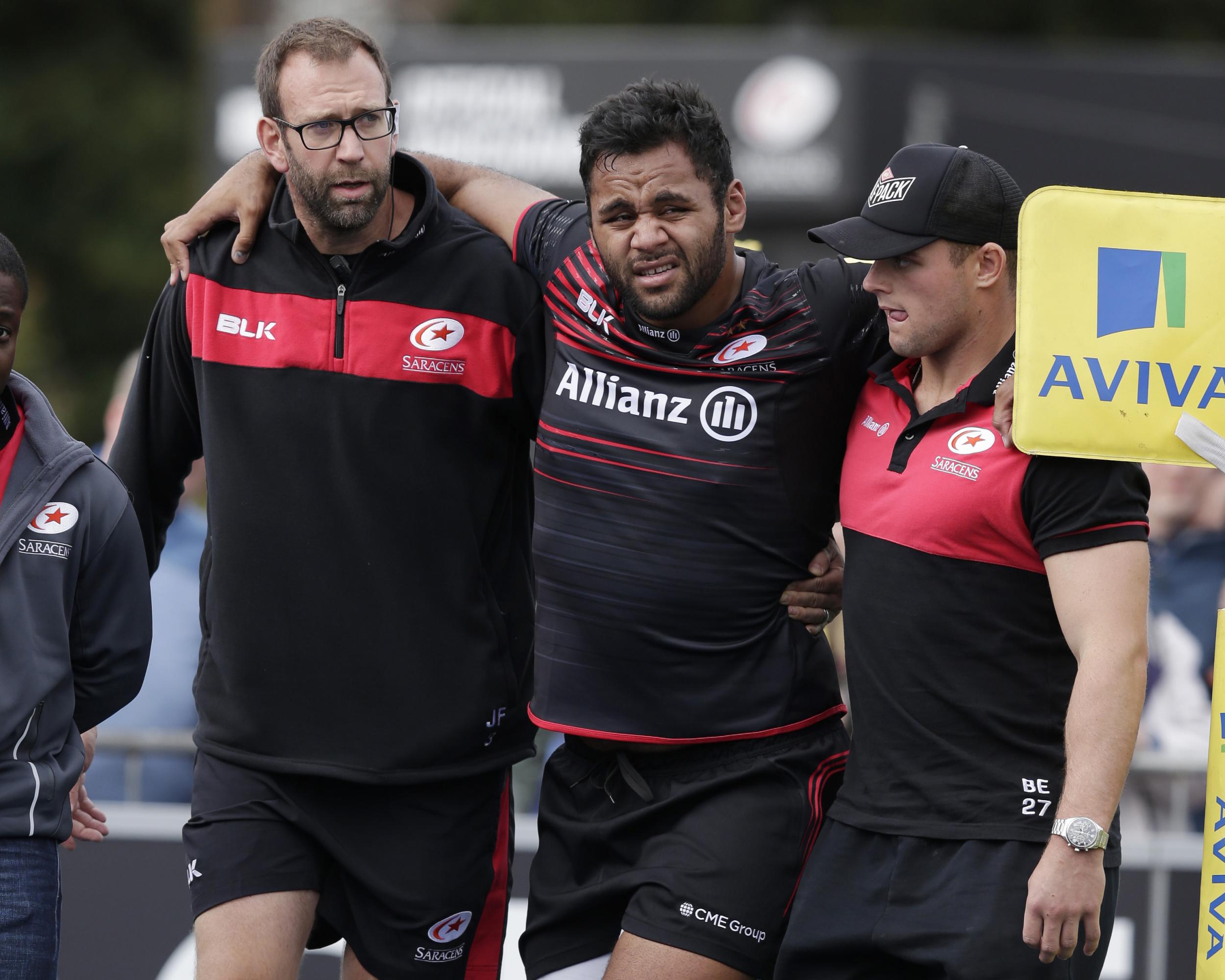The RFU needs to start listening to players or face strikes over plans for 11-month season, warns new CEO
A number of England stars have already spoken out against lengthening the season

Your support helps us to tell the story
From reproductive rights to climate change to Big Tech, The Independent is on the ground when the story is developing. Whether it's investigating the financials of Elon Musk's pro-Trump PAC or producing our latest documentary, 'The A Word', which shines a light on the American women fighting for reproductive rights, we know how important it is to parse out the facts from the messaging.
At such a critical moment in US history, we need reporters on the ground. Your donation allows us to keep sending journalists to speak to both sides of the story.
The Independent is trusted by Americans across the entire political spectrum. And unlike many other quality news outlets, we choose not to lock Americans out of our reporting and analysis with paywalls. We believe quality journalism should be available to everyone, paid for by those who can afford it.
Your support makes all the difference.The Rugby Football Union’s new chief executive, Steve Brown, has accepted that that the powers that be across the game need to start listening to player concerns about lengthening the season, otherwise risk a genuine strike across the country’s leading clubs.
Former chief financial officer Brown replaced Ian Ritchie as chief executive at the start of the month, and immediately inherited the growing issue that surrounds the new global calendar, due to be implemented from the start of the 2019/20 season. Since taking on the role, Brown has already seen Joe Marler, Billy Vunipola and most recently Ben Youngs speak out over their concerns about lengthening the season, with matters not helped at all by England No 8 Vunipola suffering his second long-term injury in the space of four months.
Under the proposed plans, the Premiership will continue to start at the beginning of September, with the final taking place at the end of June, two weeks before England’s first summer international in July that will comprise a three-Test tour – except for after World Cup years where one match will be dropped. The result is that England internationals – and likely those across the rest of Europe – face an 11-month season and just five weeks off between their last match in one season and their opening game in the next, something that has triggered great alarm among current professionals.
Speaking on the matter for the first time since replacing Ritchie, Brown appears to accept that something here isn’t right, and set a deadline for the end of the current season to put everything into concrete that will meet World Rugby’s aim to improve player welfare while appeasing the likes of Premiership Rugby [PRL] who want to wring as much money out of the game as is feasibly possible.
“We have no game if we have no players” Brown said. “Players have always been central to the RFU, but we need to bring it to the fore much more now. The players have a voice and we need to listen to them. They are saying what they think and feel about the current environment they're playing in and we need to take heed of that.
“Listening to the players, I can see two things emerging. It's not just the physical concerns, but also the mental demands and psychological pressures players are under.
“We need to understand all that and understand it properly. Facts, data, knowledge and listening are the key here.”
Pushed when this could be achieved by, given players are already voicing concerns about something that doesn’t come into effect for just under two years, Brown added: “Within this season because I don’t think we would want to let it run, but we need the time to do the work, the research and get the facts and data.

“We have set ourselves an internal target to try and have something by the end of this calendar year – there is a whole group of other people in the Professional Game Board [PGB] that need to understand things as well. I don’t want it to go into the next season or become a distraction for too long as we go into the World Cup.”
Along with weekly meetings with England head coach Eddie Jones and making sure everything is available to maximise the Australian’s chances of leading the country to Rugby World Cup glory in 2019, Brown will also need to sit down with a whole host of figures that will have a major say in the future of the global calendar – including Premiership boss Mark McCafferty and the Rugby Players’ Association Damian Hopley, who already disagree over the proposed 11-month season and could see their dispute lead to a player strike if not properly rectified.
“The key connection for us in the first instance is the RPA so talking to Damien Hopley and his team,” Brown explained. “They are representing those players and they have a collective view which is helpful to us. That is where I would like to spend some time initially and that group will share that with the PGB so the clubs and the Championship and PRL and other members of that body are involved. That is the first point of contact and brings it all together.”
But with McCafferty already announcing that the 2019/20 season will end in June, the RFU were keen not to cause a rift between them and Premiership Rugby, and will instead try to find some sort of middle ground that can bring the three parties together to reach something of a conclusion.
“They’re entitled to say that,” Brown added. “We as a collective group on the Professional Game Board need to agree that position. We’re not aligned at the moment, and there’s a few elements in that. Clearly the players aren’t aligned with that either. There’s some interesting discussions to be had, and debate. We’ll make it fact-based and evidence-based.”
It is a promising step for the future of the game, and one that may be received positively by those playing the games. But ultimately the clubs hold the power due to the lucrative contracts they are able to offer, and the fact that Brown has put a timescale on talks to reach a breakthrough – unlike his predecessor – the clock is now ticking.
Join our commenting forum
Join thought-provoking conversations, follow other Independent readers and see their replies
Comments